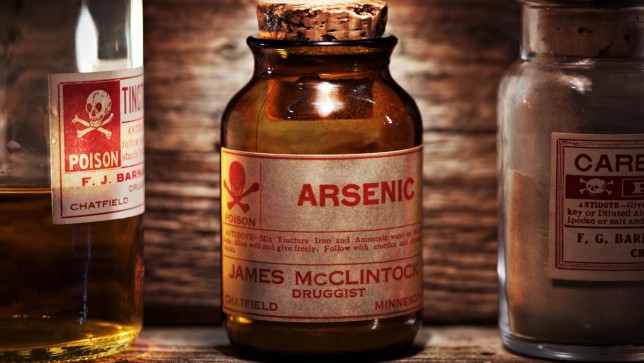Jan 8 2018
A shocking new study published in Toxicology Reports
has shown that the current regulatory assessments of the world’s most
used herbicides are wrong, with ingredients such as arsenic being
regularly found in Glyphosate based herbicides and other pesticides at
toxic levels.

Glyphosate’s toxicity is currently being debated at an international
level by regulatory and health authorities, but other formulants in
Glyphosate-based herbicides (such as Monsanto’s Roundup), are rarely
considered. The formulants used with glyphosate are declared as inert
and confidential by the pesticide industry.
Find the full peer-reviewed paper here.
Prof. Gilles-Eric Séralini from the University of Caen Normandy,
France, and his colleagues Dr. Nicolas Defarge and Dr. Joël Spiroux,
have discovered several new findings which crush the pesticide industry’s claim that the ‘inert’ ingredients in glyphosate-based herbicides do not need regulating:
- Glyphosate-based herbicides are shown to contain heavy metals such as arsenic. These are not declared and are normally banned due to their toxicity.
- Tested on plants, herbicide formulants such as POEA are toxic in isolation, while glyphosate alone is not toxic to plants at normal agricultural levels, but apparently only at higher levels.
- Tested on human cells, formulants composed of petroleum residues have a more endocrine disruptive effect and are more toxic than glyphosate.
The comparative effects of glyphosate alone and 14 of its
formulations were studied by Seralini’s team. Glyphosate was clearly
shown to not be the major toxic compound in the herbicide formulations –
Petroleum-based compounds in the herbicide formulations were more toxic
than glyphosate.
Seralini and his team also searched for other known toxic and
endocrine-disrupting elements in 22 pesticides, including 11
glyphosate-based herbicides. They discovered several heavy metals in
most formulations, in particular arsenic, chromium, cobalt, lead and
nickel, which are known to be toxic and endocrine disruptors. All
diluted formulations except one contained a cocktail of these metals.
This phenomenon thus appears to be widely distributed in the world, as
the pesticide samples mainly came from the European Union and North
America. In Asia, large amounts of Arsenic were found in the
glyphosate-based herbicides previously sold in Sri Lanka before the country banned such herbicides due to concerns about CKDu – Chronic kidney disease.
THE GLYPHOSATE BOX
New: Hair Testing – Find Out Your Long-Term Exposure to Pesticides
Test Yourself for Glyphosate and Join New Glyphosate Biobank
Glyphosate Residue Free Certification
1o Things You Need to Know about Glyphosate
Prof. Séralini stated Sunday: “These results show that the
declarations of glyphosate as the active principle for toxicity are
scientifically wrong, and that the toxicity assessment is also
erroneous: glyphosate is tested alone for long-term health effects at
the regulatory level but the formulants – which are composed of toxic
petroleum residues and arsenic – are not tested over the long term. We
call for the immediate, transparent and public release of the
formulations and above all of any health tests conducted on them. The
acceptable levels of glyphosate residues in foods should be divided
immediately by a factor of at least 1,000 because of these hidden
poisons. Glyphosate-based herbicides should be banned.”
Sustainable Pulse Director, Henry Rowlands, concluded; “These results
show that the difference between “active ingredient” and “inert
compound” is a regulatory assertion with no demonstrated toxicological
basis and thus an immediate ban on glyphosate-based herbicides is the
only way to protect public health. It is clear that glyphosate is a
serious health concern but it is now also clear that glyphosate-based
herbicides, to which we are all exposed, are an even greater risk to
human health than glyphosate alone. We all now urgently need a comprehensive safety study on glyphosate-based herbicides”
(L'empresa Bayer va comprar fa aprox. un any l'empresa que fabricava el glifosat. Això vol dir que per una banda la Bayer escampa verí que ens fa mal a la salut, i per un altre, fabrica els medicaments per curar-nos. És això??? Cuca de Llum)
____
Cap comentari:
Publica un comentari a l'entrada